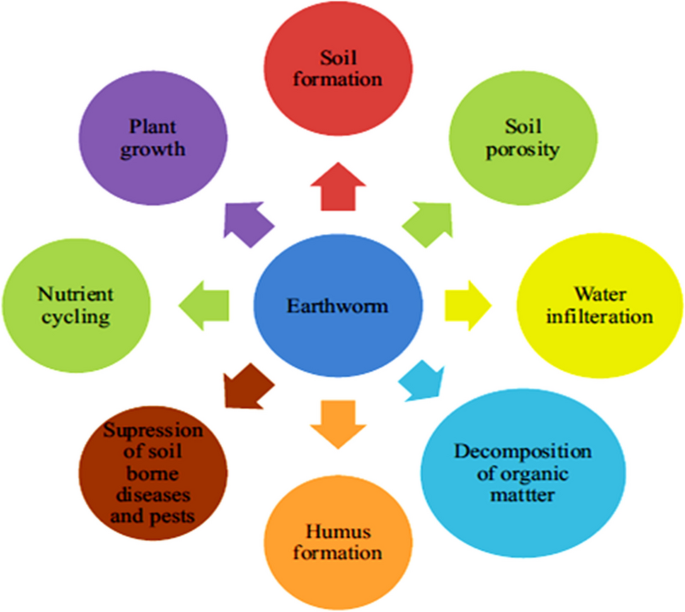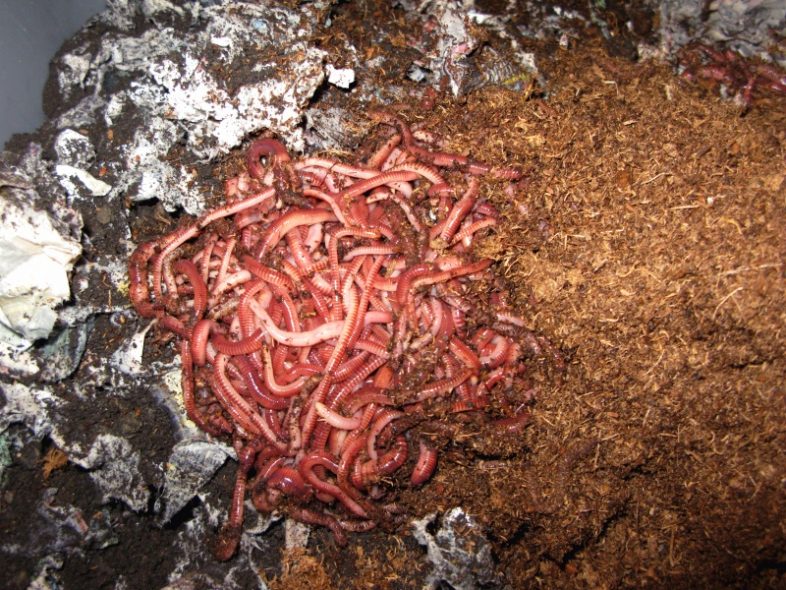The Ultimate Guide To Red Wiggler Express
Table of ContentsRed Wiggler Express for BeginnersWhat Does Red Wiggler Express Do?Little Known Questions About Red Wiggler Express.The Of Red Wiggler ExpressWhat Does Red Wiggler Express Mean?

If you're at all in tune to the farming information of late, you're well aware that dirt health and wellness is in decline all over the globe a problem that is having a dreadful influence on our food systems. The solution to this worldwide issue? Worms.
It has been adapted for the internet. Some start vermicomposting as a leisure activity and range up, whereas others have the intention right from the beginning to create a profit-making service. They might be farmers, area yard volunteers, business owners, landscapers, greenhouse farmers, or staff at facilities that produce food waste. Some are retired people, and others function full time.
What Does Red Wiggler Express Mean?
Among one of the most typical reasons for venturing right into industrial vermicomposting is the need to recycle natural waste into products that boost soil and plant health and wellness. Soil wellness has just recently ended up being an essential global issue. The United Nations Food and Farming Company declared 2015 the International Year of Dirts to increase understanding of dirt's function in food safety and security and healthy environment feature.

In the inside of a land fill, natural products break down in an anaerobic environment and launch methane, a greenhouse gas that is 25 times extra potent than co2 (Gardening). A far better option to landfilling food waste and other organic materials is to vermicompost them. What was once considered waste can be transformed into valuable products that nurture dirts and plants
Red Wiggler Express Fundamentals Explained
For the previous 25 years in lots of documents, publication chapters, and meetings, I have actually described the completed product of vermicomposting as vermicompost. This term is commonly utilized to determine the mix of earthworm spreadings (feces) and leftover bed linens and feedstock (organic material) that is collected from worm beds.
After significant idea, I determined to make use of the term vermicast throughout this book, for 2 vital reasons. One is due to the fact that lots of people use the terms garden compost and vermicompost interchangeably, not recognizing that completion product of vermicomposting is qualitatively different from garden compost. I believe it would profit the vermicomposting sector to distance itself from the term compost in describing its products.
Composting is the controlled procedure of converting natural materials right into an important dirt amendment under aerobic conditions making use of biologically produced warmth. On the other hand, a vermicomposting heap or worm bin need to be maintained to make sure that it does not warm up. In a compost heap the types and quantities of species of bacteria alter when the stack reaches thermophilic temperature levels of 106F (41C) or higher.
The Ultimate Guide To Red Wiggler Express
The bottom line marking the distinction between compost and vermicast, though, (https://www.huntingnet.com/forum/members/redwigglerex.html) is that the last has actually passed via earthworms. Hence, vermicomposting is much more similar to livestock production than to composting; it requires pet husbandry abilities to appropriately look after the worms. A 2nd reason to use the term vermicast is to prevent product labeling that can be puzzling to customers.
Worm spreading is the final item of worm food digestion and can be merely understood as worm manure. It is rich in organic matter and valuable microorganisms that create and help your garden.
Sustainable gardening is exercised when no-cost or affordable amendments such as the use of worm spreading from vermicomposting is integrated. Gathered raw material in vermicompost containers. Picture by Maggie Chen. Worms play this essential function in the vermicomposting process and also in alleviating the results of environment change. Garbage dump gas (LFG) is released as a natural result of organic material decomposition, such as food waste decaying in landfills.
In the past 2 hundred years after the Industrial Change, methane focus within the environment have more than doubled due in large part to anthropogenic human-related like this tasks (Organic). Around half of LFG released from garbage dumps is co2 and the remainder is a little percent of non-methane organic compounds. Methane is a potent greenhouse gas that stays in the atmosphere for a much shorter time in contrast to carbon dioxide yet both are launched in the atmosphere in big quantities from differing sources one of which is organic product disintegration from landfills
The Best Strategy To Use For Red Wiggler Express

Is there a food waste or vermicomposting system on your local university? It is seen that long-term and impactful actions on a system wide range can begin with a single tiny worm. Worms may be commonly connected with this gory and spooky season, yet when taking into consideration the interconnected influence of the vermicomposting process (on enhancing soil health and wellness and plant growth in your garden, minimize climate change, and equipping students) provide some admiration to the plentiful advantages that worms give.